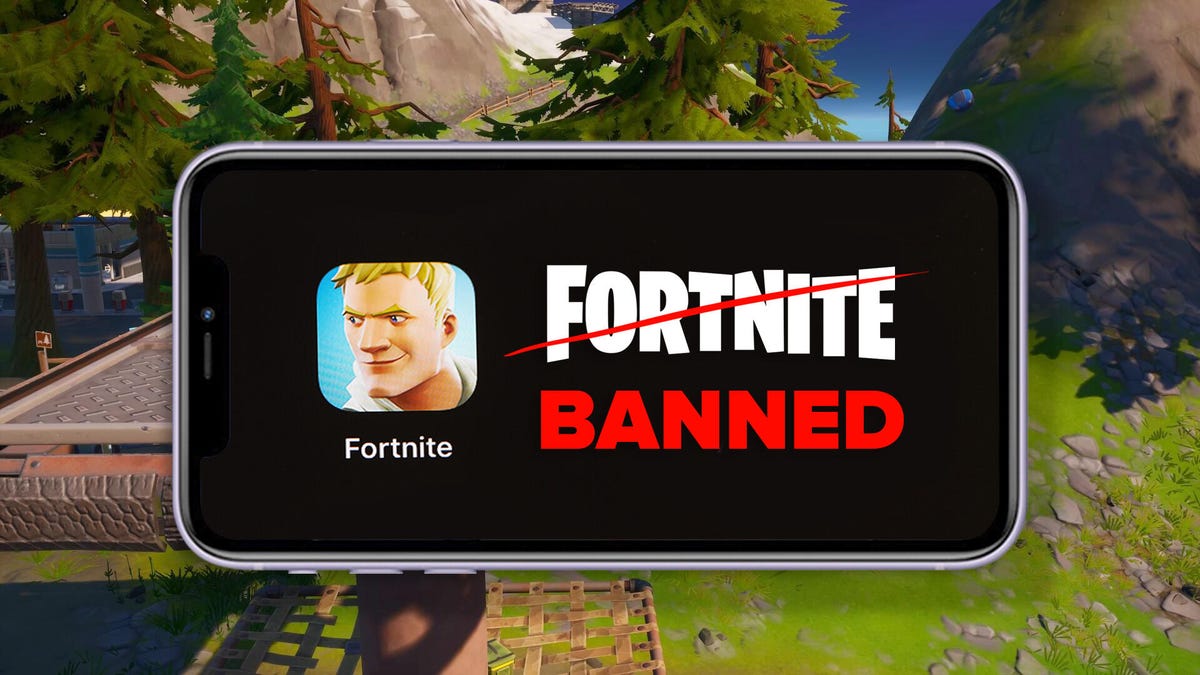Apple's battle with Epic over Fortnite could reach jury trial next July
A California judge says it should be for the people to decide whether Epic's claims about Apple's alleged anti-competitive behavior have substance.

Apple and Epic are fighting it out in court.
Apple and Epic met in a virtual court hearing on Monday to debate whether Fortnite should be allowed to remain in Apple's App Store while the two fight an even bigger battle over whether Apple is violating federal antitrust law. California Judge Yvonne Gonzalez Rogers didn't issue an update to her previous ruling, which upheld Apple's ban on Fortnite while the antitrust case is ongoing. Instead she said the companies should expect to hear from her in writing.
Rogers said it's likely the case, which she described as "the frontier of antitrust law," will be heard in July 2021. She recommended a trial by jury in order that the final judgement reached would be more likely stand up to appeal, although she said it's up to Apple or Epic to request this.
"I know that I'm just a stepping stone for all of you," she said. "Whoever loses is going to take it up and say everything I did was wrong -- that's what litigators do. There's no hard feelings, that's the job. But I think it is important enough to understand what real people think. Do these security issues concern people or not?"
The suit began on Aug. 13, when Epic turned on undisclosed code buried in its popular Fortnite battle royale game for iPhones and iPads. The game, which pits up to 100 players against one another in a cartoonish but complex last-man-standing shootout, counts more than 250 million players. And that same day, Epic circumvented Apple's payments systems for the app, allowing customers to buy items like new looks for their characters directly from Epic, rather than through Apple's payment system that charges up to a 30% commission.
It was this decision that caused Apple to pull Fortnite from the App Store and threaten to ban the Unreal Engine code Epic offers to outside game developers to help them make apps of their own. Epic responded by claiming Apple was out to crush it and saying it would sue the company (along with Google, with which it is enduring an almost identical, but separate, struggle).
In court on Monday, Rogers seemed less than impressed with the arguments put forward by Epic's legal team. She said that in the games industry, of which Epic is a part, it was standard practice for platforms to take 30% commission, as Apple does. She challenged Epic over its decision to circumvent Apple's policy in spite of its explicit contractual relations with the company, saying the company had "lied about it by omission."
"You were not forthright," she said. "You were told you couldn't do it, and you did. There's an old saying, a rose by any other name is still a rose [...] There are plenty of people in the public could consider you guys heroes for what you did, but it's still not honest."
Rogers also challenged Epic's assertion that Apple had done "irreparable harm" to its Unreal Engine. "There's no case law that says that my billion-dollar company is losing some millions and so therefore that's irreparable harm," she said.
But Katherine Forrest, a lawyer for Epic, fought to uphold the company's status as the underdog in the battle while defending its intense publicity campaign around the case. "When you are taking on the biggest company in the world and you're taking it on where you know it's going to retaliate, you don't lie down in the street and die," she said. "You plan very carefully on how you're going to respond and you try very hard to keep your head above water."
While Rogers didn't reach an immediate conclusion on whether Fortnite should return to the App Store in the interim, she did suggest a compromise. She said that Apple could allow Fortnite back on the App Store if the money collected by Epic in the meantime was held in an escrow account for the duration of the trial.
Apple's lawyers said they would have to confer with the company, although they noted that the suggestion would address some of the issues. But Epic's lawyers immediately shot down the idea, saying the court should not provide assistance to "unlawful provisions by monopolists."
"I didn't buy that argument before I'm not particularly impressed with it now," said Rogers in reply.
CNET's Ian Sherr contributed to this report.

